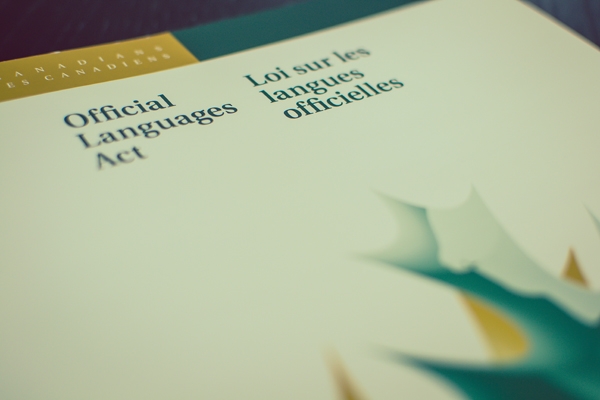Photo credit: Anik Sauvé
Senators enlisted representatives from official language minority communities across Canada to help determine the necessary steps to bring the Official Languages Act into the 21st century.
In 2019, the Act will turn 50 years old; the last major reform of the Act took place in 1988.
The testimony of these representatives formed the foundation for the Senate Committee on Official Languages’ second interim report on modernizing the Act.
“The official language communities were loud and clear: it is time to modernize the Official Languages Act and reinforce it so that it may adequately meet the current needs as well as the aspirations of official language communities in a minority situation across the country," says Senator René Cormier, Chair of the committee. "The rigour and strength of the testimonies confirm the relevance of modernizing this quasi-constitutional Act, which, as we have heard from multiple witnesses, is at the heart of Canada’s social contract.”
The report, released Thursday, focuses on the application of the Act to English-speaking communities in Quebec and to francophone minority communities elsewhere in the country. It reflects the concerns and suggestions presented by witnesses whose detailed, well-thought-out proposals reflected a broad consensus while also promoting the specific needs of their communities.
Witnesses believe the federal government should take on a true leadership role in the development of official language minority communities. They ask that the government prioritize measures to strengthen their community’s vitality.
Modernization must also factor in other aspects of the Act’s implementation like the delivery of services in both official languages, language of work and accountability. Communities propose implementing the entire Act consistently, strengthening the powers of the Commissioner of Official Languages and defining ministerial responsibilities clearly. They ask that the example be set at the highest level.
Senators praised the witnesses, among them individuals and representatives of communities, groups, and associations from across the country, for their passionate dedication to Canada’s official languages.
“The dedication of official language minority communities to not only preserve but to promote the vitality of their language – and their genuine support to linguistic duality in Canada – is commendable," says Senator Rose-May Poirier, Deputy Chair of the committee. "We have witnessed it throughout this study and we are grateful for their engagement.”
The committee’s next interim report will examine the views of stakeholders who have witnessed the evolution of the Act since it was passed; a final report with recommendations is expected to be completed next year.
The article first appeared in the Senate of Canada.

